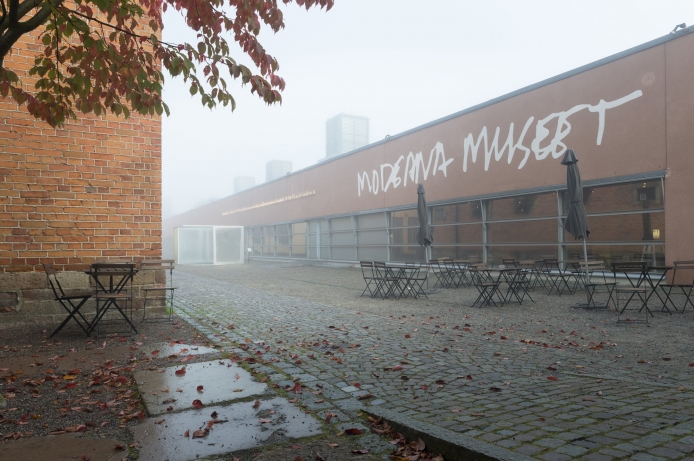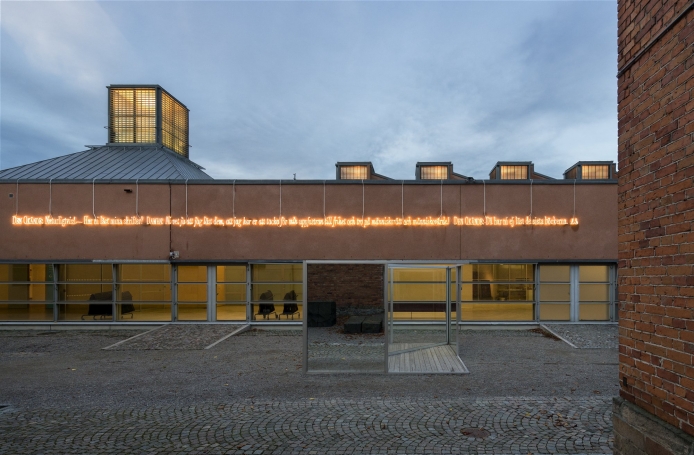- What We Do
- Understanding your audience
- Engaging new audiences
- Designing experiences
- Building loyalty
 Case studies
Case studiesModerna Museet: Maximising the potential of temporary exhibitions
Moderna Museet built targeted exhibition evaluation into its rolling visitor research. The insights shed new light on the audiences the exhibitions attract and have given Moderna’s curators permission to be bold in their exhibition planning.
The challenge: more audience insight to inform exhibition planning
Moderna Museet in Stockholm has built targeted exhibition evaluation into its rolling visitor survey to continuously improve how temporary exhibitions are developed and communicated.

This started back in 2017. At this time the museum had been using secondary data from the Audience Atlas Sweden to inform exhibition planning, but they wanted primary research to find out:
- Which Culture Segments actually visited each exhibition?
- How engaged were these audiences in exhibition content?
- How did these audiences respond to exhibition design, layout and information?
- What return on investment (ROI) did the museum get from their marketing spend?
The approach: exhibition evaluation built into V360º rolling research
Moderna Museet was already using MHM’s Visitor 360º rolling research to gain visitor feedback throughout the year. The team decided to add extra questions in Spring and Summer to analyse the visitors for two exhibitions: Marina Abramoviç and Marie-Louise Ekman. This would make it possible to compare the audiences for the two exhibitions against each other, and against attenders to the museum in general.
Impact: Eye-opening results for Moderna Museet
Marina Abramoviç – a surprise hit with Release:
The research was eye-opening for Moderna Museum – particularly in relation to Culture Segments. They found that Marina Abramoviç had broader appeal than was first anticipated and had managed to reach the more mainstream Release segment, which contributed to the exhibition’s success. This had not been anticipated and gave the museum confidence to reach out to ‘less-typical’ visual arts audiences in future, assuming the proposition is appropriate.
Marie-Louise Ekman struck a chord with Stimulation
The museum had targeted the more traditional segments Enrichment and Perspective with the Marie-Louise Ekman exhibition, but was surprised by how well represented the risk-taking Stimulation segment was, which they attributed to the quirky, vibrant cover image and artist biography.
Marketing: evidencing return on investment
The research demonstrated that Moderna Museet’s marketing investment had paid off. The Abramoviç audience showed above-average recall through a range of paid and unpaid publicity sources. It actually drove 44% of all museum visits during its run.
Ekman, on the other hand, was more successful at converting people to visit the exhibition once they arrived on site. This suggests that the exhibition was seen as more accessible and intriguing by casual visitors who had only planned to view the permanent collections.
Next steps: removing the guesswork from exhibition planning
Building exhibition evaluation into the rolling research process has given Moderna Museet hard data on which segments its audiences actually belong to. (There were some surprises here – Sweden’s traditional Perspective and Enrichment audiences are not as well-aligned or easy to reach as first anticipated.)
This has given the museum confidence to target more culturally adventurous segments like Essence, Expression and Stimulation in future, as well as more mainstream risk-averse segments (like Release) depending on the exhibition in question.
Moderna Museet are now applying the same methodology to their 2019 programme, conducting evaluation for Gilbert and George and Arthur Jafa, as they build a virtuous cycle of continuous improvement for temporary exhibition delivery.
- Engaging new audiences
- Understanding your audience
